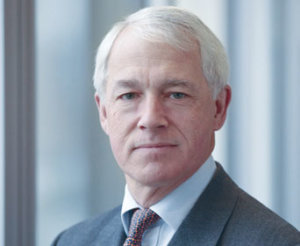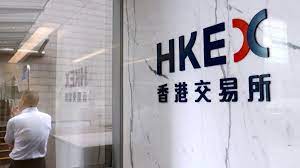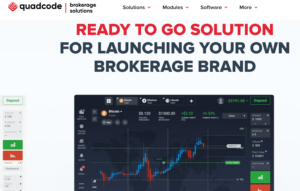“Mind The Gap!” – The life and times of a man on the move Episode 24
Nobody raised the margin, Where would you go?, A venue that could do so much more for real FX innovators, mixed opinions on the quality of ASIC and it’s still very good at the top

In this weekly series, I look back on what stood out, what was bemusing, amusing and interesting during my weekly travels, interesting findings within the FX industry and interaction with an ever-shrinking big wide world. This is purely observational and for your enjoyment.
Monday: All calm on the margin front
The anticipation of this week’s market news managed to make its way into the realms of those who would otherwise perhaps concern themselves less with movements between major currency pairs than others.
What makes our business so interesting is its relationship between the software development contingent and those at the absolute coal face of liquid financial markets, meaning that half of us are technologists and half of us are market specialists.
This week, in the approach to British Prime Minister Theresa May’s expected vote of no confidence which in the end did not materialize, several technologists and marketing executives whose companies are external to brokerages contacted me to ask if I had become aware of any imminent increases in margins by retail FX brokerages to safeguard against volatility if Mrs May was ushered out of Number 10 Downing Street at this pre-Brexit stage.

“Brexit Britain – where are we heading?” asked a PR specialist from London during a conversation on Monday. I explained that it’s quite easy from a global point of view. Simply exit with no deal with Europe, and then just as is the case with other nations, let any international firm or business make its own individual trade deal just like Australia would with the UK or the US, all of which are quite simply more aligned trade partners than mainland Europe.
England, and in particular London, will prosper tremendously without the millstone of Europe around its neck, and this view was shared by many executives in London that approached me on whether I had heard any nervousness among brokers which could send them reaching for their margin increase setting.
One particular retail FX market analyst in London asked me “Are you seeing anyone increase margin on GBP trades this week? I haven’t. There is talk of a +/- 6% swing and maybe more if the vote doesn’t come before the thin Asian session.”
The reality is there was absolutely no margin increase by any brokerage. Yes indeed, memories are often short in such a liquid market as FX, but the catastrophic consequences that the Swiss National Bank’s sudden removal of the peg on the EURCHF pair in January 2015 did enough to ensure that most risk managers today are acting preventatively before any unexpected geopolitical event, especially if it occurs in one of the world’s largest financial markets centers such as London.
.This alludes to the confidence in the market that Britain’s approach should be a pragmatic one. I also had not heard of any increases in margin this week at all as the events folded and unfolded, then folded and unfolded again, even with the short-lived talk of a possible general election which would open the terrifying possibility of an outright socialist being elected who would then, along with his band of 1970s firebrands, set about destroying Britain’s business structure.
Tuesday: Margins were steady, but where would you go?
The conversations continued on Tuesday, however this time the focus was more on the viability of running a private enterprise in the United Kingdom if a snap general election was called and the librarian, er, I mean Prime Minister that is currently occupying 10 Downing Street gives way to the dangerous wolf in sheep’s clothing in the opposing socialist party whose ethos would be quite simply to impoverish the country and wreck businesses, large or small.
“I just feel I’m going to be in the cross-hairs of the loony left. The richest will always find a way of circumventing it, those on lower incomes would share the spoils and it’s the folk like me somewhere in the middle who are left footing the bill. At least I have three overseas clients who should be able to pay me in USD. I just think things are so joined up now that even a Cayman Islands bank account wouldn’t stop them from finding me” one self employed marketing executive told me.
That is a very accurate analysis, and I think the socialists always bank on the lack of absolute mobility of the middle classes so they can attempt to control people and remove their independence. What they perhaps do not realize is that in a fully electronic, online, global industry such as ours, we all have massive choices, and the financial services industry is the backbone of London, with only 0.00009% of all of the EU’s workforce employed in London’s financial sector, it produces 16% of all EU tax receipts.

Quite simply, large publicly listed firms would enlist one of the Big Four to simply structure their accounts in a jurisdiction such as Singapore, which is rapidly becoming the world’s center for institutional capital markets and FX dealing for the vital and futuristic APAC region, and then transfer all of their capital out before the capital controls come in, and small businesses would just close their Limited Company online via Companies House and then open it in Australia with an Australian bank account, and then carry on as normal.
Most modern business leaders in the tertiary or high technology sector would be able to do this without even having to leave their seat or change anything about their commercial operations.
A small software consultancy in Shoreditch run by a young Computer Science graduate is a prime example of the future of Britain’s technological economy. “I have my business in the UK for many reasons but if the lefties get in I’m moving it out” was the view of one such technologist this week. “Sadly let’s say there are 10 million small businesses like you and me and we all do that , bye bye UK economy” he said.
Let’s not be dramatic here, after all the UK is a very stable and pragmatic environment, and of course the potential no-confidence vote turned into a confidence vote for Mrs May, even if it was simply to avoid any instability until the Brexit is complete and a normal term General Election can take place, however the viewpoint is clear. Labour gets in, everyone divests. I am a member of a business group in London based at the Institute of Directors, and a quick chat with various members last week highlighted that regardless of business sector, they would all divest. Can you imagine?!
The confidence in the strength of the market and the resolve of the public was demonstrated by the FX brokerages not making any changes to margins. Let’s hope that resolve continues at the polling booths next year.
Wednesday: Let’s get technical
This Wednesday, a small group of executives from very large multinational market data and information firms (think along the lines of Thomson Reuters, for example) convened at the Tel Aviv Stock Exchange, or should I say outside it after the event that they had hoped would be of great interest turned out to be a damp squib.
Over the last few years, it seems, there is an event which is supposed to focus on new financial markets technology almost every month held at the Tel Aviv Stock Exchange, yet nobody I know has heard of it, and those who attended last week’s were sorely disappointed.
It seems that the disappointment lies not with the venue or the ideology, but the content and the small-fry that attend.
I would say that ordinarily, nobody in our industry would be even remotely interested in the Tel Aviv Stock Exchange, as it is pretty much a non-entity among derivatives venues and only lists small startups or government-backed dinosaurs such as Teva Pharmaceuticals, however if Tel Aviv Stock Exchange is holding itself out as a venue for technological innovators, why is it not being used as a platform and physical venue for the world’s science and financial technology geniuses to meet each other?

Instead, the 20-something ‘blockchain’ (and I use that word VERY loosely) soundbite merchants frequent it from a 500 meter radius of the venue to open and close their vacuous mouths at maximum volume about follies that have a vague connection to distributed ledger systems or, even worse, schemes that market cryptocurrency, and for that, read recycled affiliate marketing and gaming efforts that proliferate the basements of South Tel Aviv having morphed from online poker to adult entertainment to binary options and now this.
My sensibilities were buffeted just outside the venue by an over-confident affiliate marketing freelancer – Tel Aviv is absolutely full of them, and most have been working at binary options brands and now carve their way through life by selling lead lists or obsolete PPC campaigns for the vain hope of lead acquisition in the most obstinate and forceful manner.
This particular individual was quite sure that her understanding of absolutely everything in every aspect of the world was at a far higher level than anyone else, which of course it wasn’t, by far, and therein lies the problem.
Until the Tel Aviv Stock Exchange realizes what it has to offer as an emerging exchange for the purposes of listing and potentially promoting proper bona-fide innovators and setting them on the path to global expansion via public shareholders, it will be saddled with the megaphone-voice racuousness of the lowest echelons of the marketing world and will be ignored by proper professionals.
I see a tremendous opportunity. Clearing out the PPC brigade and the local loudmouths would open up the venue for genuine investment opportunities and public status for the global pioneers of the future of the industry.

It is not far fetched at all – after all Yossi Beinart, one of Chicago’s derivatives industry’s most highly respected senior executives who went on to lead IG Group’s NADEX division at the beginning of this decade, was elected CEO of Tel Aviv Stock Exchange around 5 years ago, which demonstrated that they needed a technologically-astute leader rather than an accountant at the top.
I for one, would love to see Tel Aviv Stock Exchange offer proper value to proper innovators as a venue for not only meeting and networking, but going public which in turn would increase the value of their innovations and improve all of our lives.
A revolution is what is needed.
Thursday: ASIC – The best of the lot?
Australia’s business environment is one of the finest in the world. It is absolutely clear that the financial markets economy, its participants and the infrastructure and talent base that operates and underpins it is of very high caliber indeed and in many ways is the flagship of the retail FX industry worldwide.
This can be attributed to a few factors, some of the key ones being the high social and professional standing of the vast majority of executive-level professionals in the Australian FX business, the well-organized, modern and sophisticated business ethic that Australia has cultivated ever since its days as a commodities and raw material trading region began over 150 years ago at the hands of the Macquaries, rule of law, high levels of education and technological understanding, and of course, the widely recognized best regulatory authority outside North America, that being ASIC.
I have never heard anyone, whether broker, trader, IB or institutional liquidity vendor make even so much as a small negative comment about ASIC. In fact I would concur that the regulator’s pragmatic approach to fully understanding our business environment goes far in excess of any other regulator in the world.
ASIC for almost 9 years now has had First Derivatives system in place which conducts real time surveillance on all market participants, therefore immediately highlighting any irregularities in business activity which would result in a compliance inspection and in some cases what ASIC calls “enforceable undertakings” against brokers.

ASIC’s ability to take firms to court and wind them up resembles that of the CFTC and NFA in the United States, and the entire APAC region refers to Australian brokers as entities that possess a combination of highly skilled leadership, honesty, modernity and safety.
On Thursday, however, two professionals in this industry, one being a senior brokerage executive from Australia (Working for a North American retail firm’s APAC division) and another being an IB based in South East Asia, approached me to perhaps chastise my continual lauding of ASIC and show their disdain. Whilst I disagree with the disdain displayed in some respects, an open mind is how we resolve things in all business areas, so I thought I would detail them.
Said particular senior brokerage executive “May I suggest a closer reading of the Royal Commission into the misbehavior of financial institutions with specific focus on the 2 regulators: ASIC and APRA. ASIC got slapped so badly that there is discussion of breaking it up. It was considered too close to the institutions it governs, which makes it a fat domestic cat in amongst the dobermans. If you ask the industry of marketing people who run the brokers in Australia most will chuckle at the suggestion that ASIC is world class, so may I suggest toning down your words around how you describe this institution just to keep things in better perspective.”
Well, that told me off, didn’t it? I will maintain an eye on this, in the interests of keeping any negative comments balanced and will ensure to report anything of interest.
The IB that I spoke to demonstrated to me a letter he had forwarded to ASIC which asked for an official reason why the regulator did not make an immediate announcement when DirectFX went under recently.
He asked ASIC “Is there any reason why an official news announcement was not made when the insolvency was official? The broker’s website is still running. What has ASIC done to protect the public about this? Normally when a broker enters into administration, it has its own announcement directly from the regulator’s mouth. A client has to find out through gossip channels that their broker has shut down. How many people may have continued to send in deposits? A small disclaimer at the top of the website hardly qualifies.”
Australians are used to quality so they think that what would be perhaps small detail in other region is a major moot point in Australia. Most other regions are nowhere near this advanced when it comes to regulation. ASIC understands our industry properly and uses the right technology and of course whilst not being able to please everyone, in my opinion does a very good job of it for the most part.
Friday: Top Trumps
It’s good to see the quality of leadership continuing among our institutional giants.
On Friday, Richard Berliand’s appointment as Chairman of TP ICAP represented a good move for the publicly listed firm.
Mr Berliand is a discerning professional with a deep understanding of the institutional prime brokerage sector, having been Global Head of Prime Services at JP Morgan for ten years, and having maintained important leadership capacities whilst in that role including having been Chairman of Market Structure Practice (2008-2010), Global Head of Cash Equities (2006-2009).
His regulatory standing is high, too, as he has been on the committees of the FIA and FCA for specified terms as part of his 30 year career.

Keeping this type of expertise in the OTC world is vital, and whilst it is a great asset that Tier 1 banks face OTC counterparties at levels such as ICAP and influential leaders such as Michael Spencer have made their mark in ensuring that talent transfer is able to be channeled via that relationship – otherwise the vast and well capitalized venues such as LSE or Deutsche Boerse (the latter of which has a massive appetite for gobbling up OTC firms, and Mr Berliand has worked for) would just hire all the top talent.
That the OTC world has continued high level leadership is important and should be a quelling factor for anyone who is asking what sort of future OTC FX has. I was asked this last week by a mainstream journalist from one of London’s financial newspapers. My answer: A very good future indeed, especially if you avoid the noise of the low level affiliate or blockchain underclass in peripheral regions and concentrate on the top end non-bank market makers and large institutional trade clearing and reporting entities that formed this business in the first place, all is indeed flourishing.
I just wish they would reach out to the industry’s major participants such as retail brokerages more liberally. That in itself would be tremendously reassuring.
Wishing you all a super week ahead!









